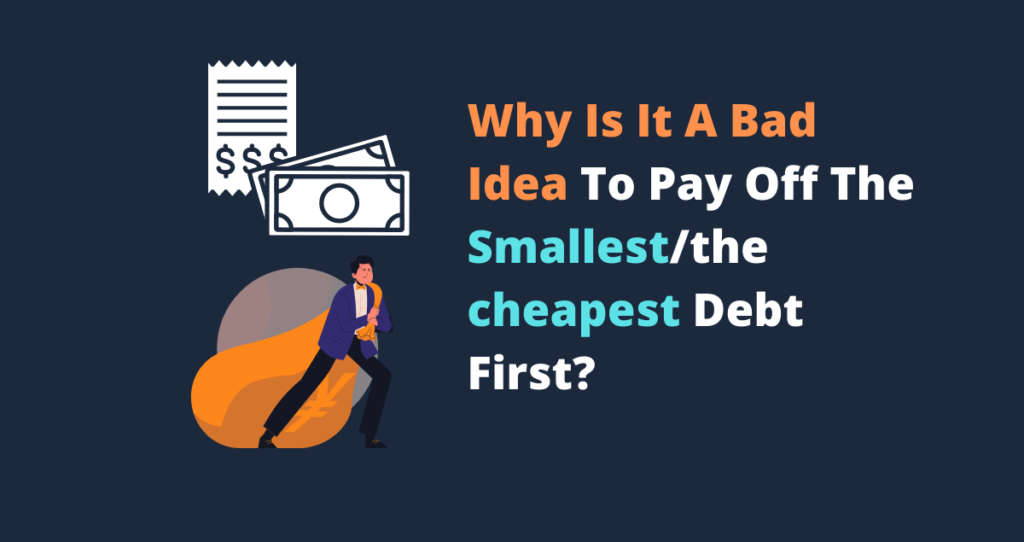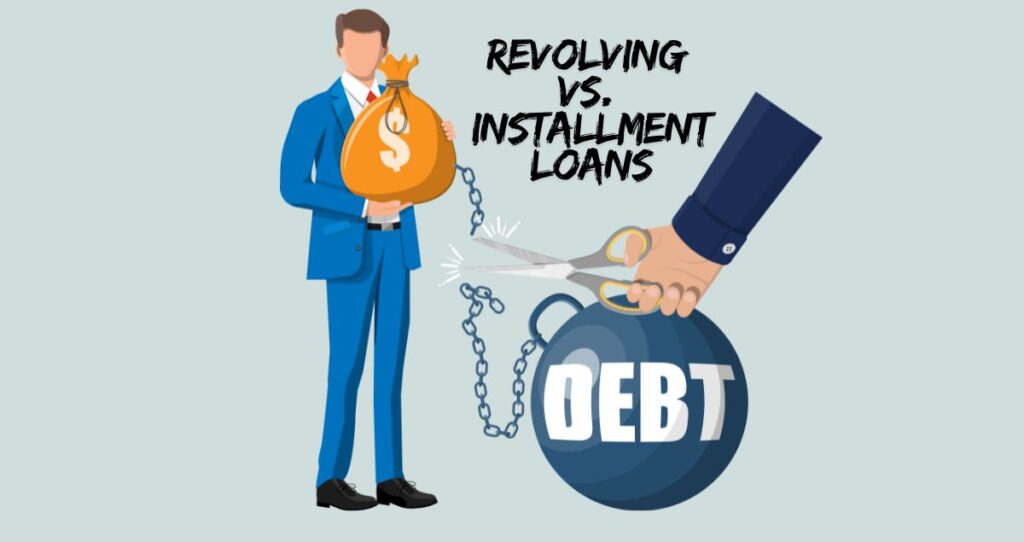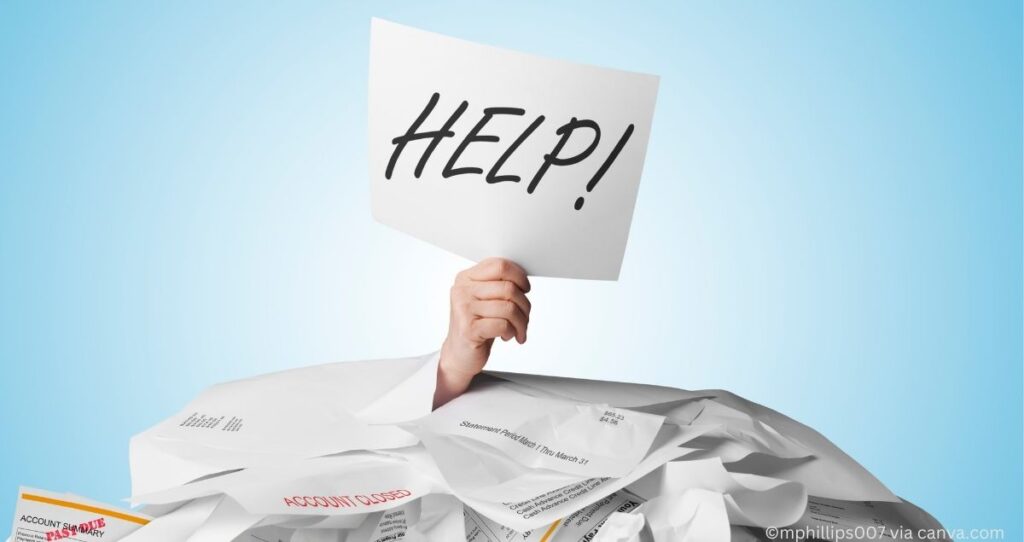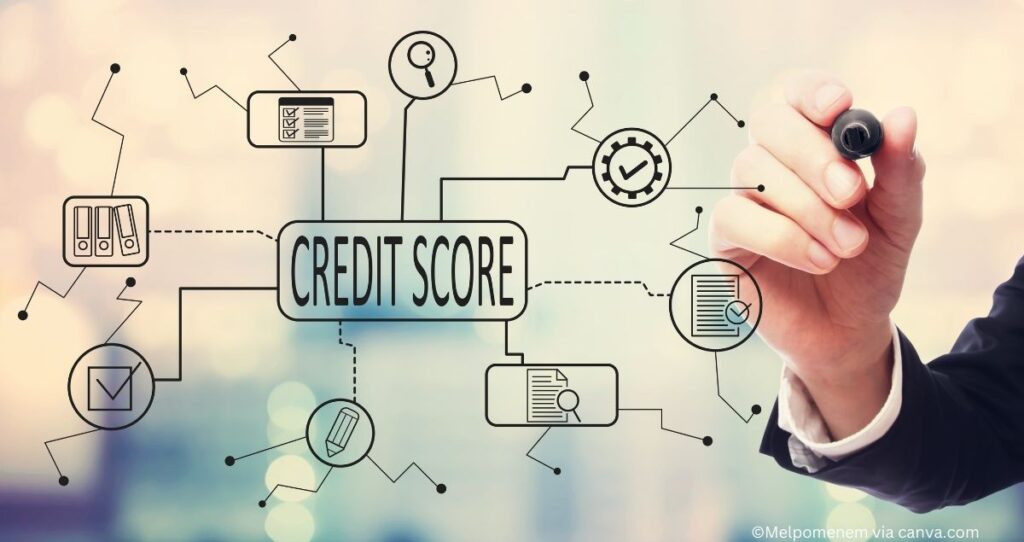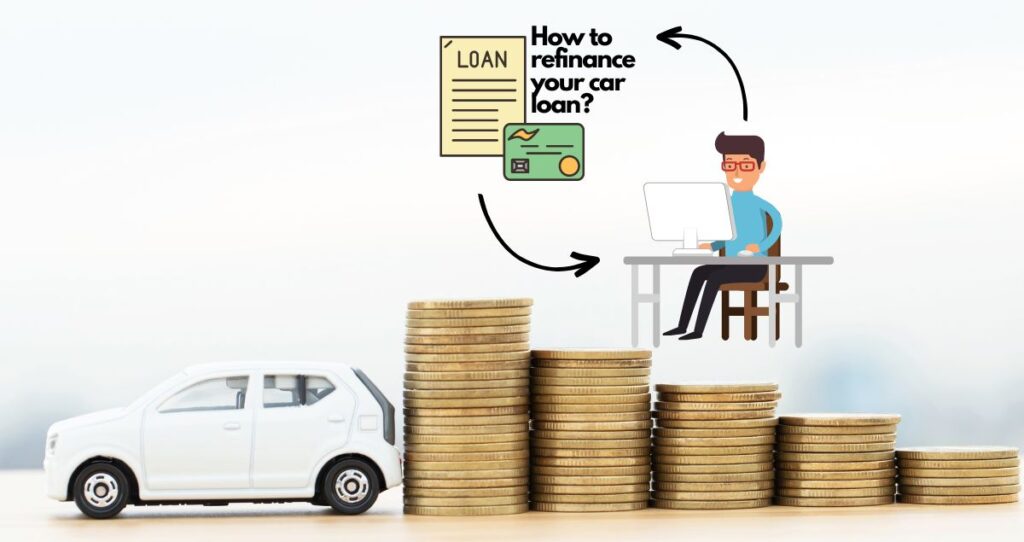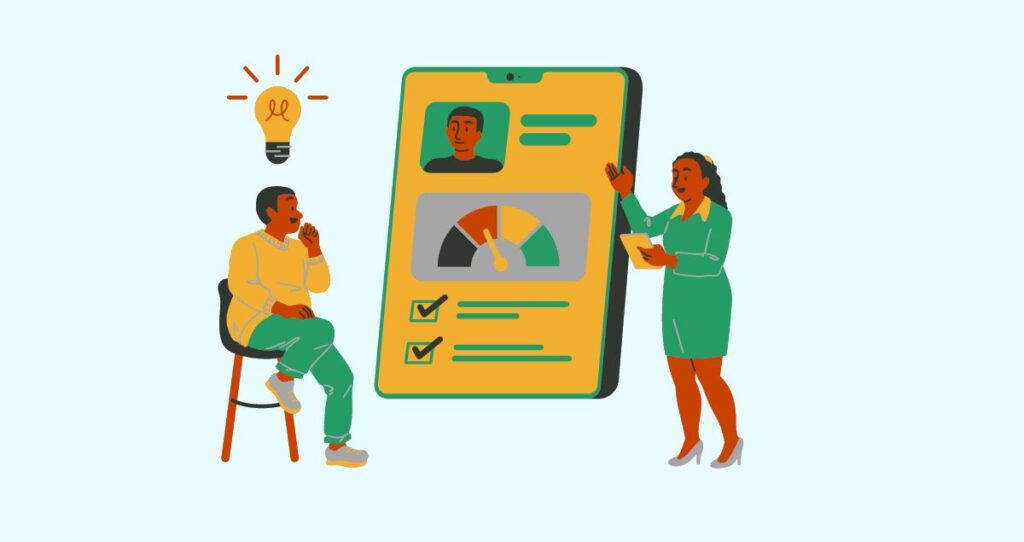Finding the best loan for buying a house can be a challenging task. As a borrower, you must get a loan with competitive rates, favorable terms, affordable monthly payments, and a reduced down payment when necessary. Taking advantage of first-home buyer benefits and other government incentives is critical when looking for the best home loan. Finding a home loan that checks all these boxes can be challenging, especially when you don’t know where to look.
Most lenders prefer borrowers with good credit scores, lower DTI ratios, established credit history, etc. Even if you have all these boxes checked, you still need to apply for the right loan. Your current financial situation, desired payment structure, government incentives, and down payment will affect the type of loan you qualify for.
This article will help you determine the best loan to buy a house, no matter your credit score, down payment, or financial situation.
Take advantage of government incentives and the good credit you have built
When deciding which home loan is best, evaluate your unique situation. Sometimes, government incentives you qualify for might help you pick a specific loan, even if it comes with a higher interest rate.
For example, if you live in a rural area, a USDA loan could be the best loan for buying a house in your situation. However, the same loan will not be an excellent option for someone buying a condo unit downtown. If you are a veteran, a VA loan will be the best to buy a home compared to conventional loans. This is because VA loans might not require a down payment, interest rates are competitive, and you might not even purchase private mortgage insurance(PMI).
A conventional loan will be the best choice if you have a good credit score, a lower DTI ratio, and at least a 20% down payment. This is because a sizeable down payment will lower your mortgage balance. As a result, your monthly payments will be affordable due to lower interest charges on the loan, lowering the cost of the house.
You must also choose between a fixed-rate mortgage and an adjustable-rate mortgage. The interest you pay on your loan and monthly payments do not change for the duration of the loan on fixed-rate mortgages. On the other hand, adjustable-rate mortgages start with a fixed interest for a few years before your interest starts going higher or lower based on market rates.
Understand how a fixed-rate and adjustable-rate mortgage will affect your monthly payments and financial goals.
Before signing up for any mortgage, you need to understand how different rate structures will affect your monthly payments and finances. That is, you need to know the difference between fixed-rate and adjustable rates and what to expect from each one. Before diving into the best loan for buying a house, let’s see how these rates differ.
A fixed-rate mortgage(FRM) is good for people who plan to stay in the house for a long time and when market rates are lower.
Most homeowners qualify for fixed-rate mortgages due to their low risks and excellent payment structures. A fixed-rate mortgage (FRM) is a perfect choice for people who plan to stay in their houses for a long time and need stability in their monthly payments. FRM will also serve you well when market rates are low by the time you buy a house. Having a fixed rate means that the interest rate you pay and monthly payments will be the same for the duration of the mortgage.
The following are some of the pros and cons of fixed-rate mortgages to help you evaluate if an FRM is the best loan for buying a house in your case.
Pros of getting a fixed rate mortgage when buying a house.
- The interest rate will never change
- Monthly payment will stay the same
- Longer terms(15 year or 30 year terms)
- The principal amount will increase, and interest charges will decrease over time through the amortization process.
- If you lock in a lower rate, you will always pay a low rate, no matter what happens in the market.
Cons of fixed-rate mortgages
- You must pay private mortgage insurance(PMI) when your down payment is less than 20%. PMI protects the lender in case you default on the mortgage. Usually, PMI gets waived when your mortgage balance reaches 78% of the home purchase price.
- A fixed-rate means you will not benefit from low interest when market rates go lower. You can take advantage of low rates by refinancing your mortgage.
- If you get FRM when market rates are high, you will pay higher interest charges before qualifying for refinancing.
Adjustable-rate mortgages (ARM) are good for short-term duelers or when rates are higher and you expect them to go lower over time.
If the interest rates are higher across the industry, a fixed rate might not be the best form of a mortgage when buying a house. This is because your interest rate will stay the same for the duration of the loan unless you refinance your home. What you can do instead is to get an adjustable-rate mortgage(ARM), which is the alternative to a fixed-rate mortgage. Why an adjustable rate? Because your interest will change over time to reflect market rate changes. You pay a higher interest now and a lower rate when market rates decrease.
However, your interest rate can continue to increase if market rates continue to climb. For this reason, the house might cost you more money.
In addition, your monthly payments will not be stable. As your interest rate changes, your monthly payments will also change.
Is an adjustable-rate mortgage the best loan for buying a house? Check the following ARM highlights for more details.
- Adjustable-rate mortgages start with a fixed-rate interest known as a teaser rate for 5 to 10 years, though 5 years is more common. After that, your rate will change to an adjustable-rate mortgage to mimic market rates.
- Experian says ARMs include rate caps (periodic caps and/or Lifetime Caps). These caps limit how much your rate can rise or fall in a given period or during the mortgage’s lifetime. Common Caps are 2% for periodic caps and 5% for Lifetime Caps.
- If rates increase after the initial fixed-rate phase, refinance the mortgage or sell the house. This will prevent you from paying a higher-than-necessary interest rate or wrecking your finances.
Now that we have covered the basics of home loans let’s evaluate what loans are best for buying a house.
1. Conventional loans: These are offered by lenders without government incentives and are the best loans for buying a house when you have a large down payment and a good credit score.
Conventional loans are some of the most used home loans among consumers. You can easily get one from private lenders like banks, credit unions, mortgage companies, etc. Unlike other types of home loans, such as VA loans, conventional loans do not come with government incentives.
Since conventional loans do not have government incentives, they usually have stricter terms. A conventional mortgage will be the best loan to buy a house if you have a good credit score, a solid credit history, a lower DTI ratio, and a stable income.
Here are a few critical points about conventional mortgages if you plan to buy a house.
- You can get a conventional loan with as low as a 3% down payment.
- You need to have at least a 620 credit score to qualify for this home loan
- Having a lower DTI ratio and a stable income helps you qualify for more money
- PMI might be required for down payments under 20%
The impact of the lack of government incentives on conventional loans
Unlike FHA loans, conventional loans are not insured by the Federal Housing Administration(FHA). This means conventional loans are stricter, and lenders evaluate borrowers very carefully. Conventional mortgages are flexible and require as low as 3% down payment. However, to make this low down payment, your lender might require a higher credit score and the purchase of private mortgage insurance.
By default, you need a 620 credit score to qualify for a conventional loan.
Lenders usually require a 28% or lower debt-to-income ratio for conventional mortgages. In rare cases, your lender can take a DTI of as high as 50%. To increase your approval odds, keep your ratio under 28%. Most lenders also require proof of income for the last two years before applying for the mortgage.
The conventional mortgage is the best loan for buying a house when you are a first-time home buyer or have a sizeable down payment. Usually, a 20% down payment is required for conventional loans. First-home buyers, however, can put as low as 5-10% in a down payment. Those with higher credit scores can put down as low as 3%.
The following are some of the benefits of conventional loans
- PMI cancels when equity reaches 22%.
- Homebuyers with higher credit scores pay in private mortgage insurance.
- Conventional mortgages come with higher loan limits ($647,200 for 2022).
- Allow a lower down payment.
- Conventional loans come with less strict property standards
Drawbacks of conventional mortgages
- Need a higher credit score. At least 620.
- Strict eligibility requirements. Due to the lack of government incentives, mortgage companies, banks, and credit unions choose less risky borrowers.
- A lower DTI ratio is needed. Borrowers with too many debts find it harder to qualify for conventional loans.
- You need to purchase a PMI when your down payment is under 20%. PMI protects the lender when you default on your mortgage.
- You pay higher closing costs when your down payment is lower
2. FHA loans
Consider an FHA loan if you are looking for the best loan to buy a house with a lower down payment. FHA loans are some of the most flexible loans on the market. They require low down payments(at least 3.5%), which waive conventional loans’ 20% down payment requirements. In addition, FHA loans do not require as good credit scores as conventional mortgages.
Remember that being the best loan for buying a house in terms of down payment, FHA loans also have drawbacks. Homeowners pay higher closing costs due to borrowing more money. In addition, higher mortgage balances increase your monthly payments to cover interest and principal. As a result, the house costs you more money by the time it is paid off.
Before you sign up for an FHA loan, evaluate the benefits and drawbacks of these loans to avoid long-term financial stress.
Benefits of FHA loans
An FHA loan might be the best home loan for many reasons. For example, an FHA loan will be a good choice if you have bad credit, have negative items on your credit reports, don’t have the required down payment for conventional loans, or have a higher DTI ratio. The following are some benefits of FHA loans that make them stand out for many homebuyers.
- Requires lower credit score. Unlike conventional loans that require a credit score of at least 620, many FHA loans require a 580 credit score.
- No income limits. There are no high or low-income limits for FHA loans. If you have cash and want to use it for other projects, you can save your cash and still buy a house by putting down as low as 3.5%.
- Flexible for people with bankruptcy, foreclosure, and Chapter 13 discharge on their records. Most lenders will deny you a mortgage and other forms of credit when you have these negative items on your credit reports. For example, a bankruptcy will stay on your credit reports for 10 years. During this period, many lenders will not consider your credit account applications. For an FHA loan, you might be approved for a loan 2 years after filing for bankruptcy or foreclosure. Learn how to avoid foreclosure on your home if you struggle to make payments.
- FHA loans accept higher debt-to-income(DTI) ratios. Most lenders prefer borrowers with DTI ratios under 28% for conventional and personal loans. FHA loans, however, can take as high as 50% or more. If you have more debts and cannot qualify for other loans, apply for FHA loans.
- FHA loans require a lower down payment. If you don’t have a large down payment, an FHA loan could be the best loan for buying your dream home. These loans require a much lower down payment than conventional ones.
- Your down payment usually depends on your credit score. A 580 credit score is needed to qualify for a 3.5% down payment. People with a credit score under 580 may still qualify for an FHA loan for a 10% down payment. The higher your credit score, the more your lender is willing to take a lower down payment on the loan.
The downside of FHA loans
- Putting less down costs you more money in closing costs. A small down payment, such as 3.5%, results in borrowing more money. By borrowing more money, you automatically pay higher closing costs since some of your closing costs are expressed as a percentage of the loan amount.
- Putting less than 20% down payment results in purchasing the Mortgage Insurance Premium(MIP). With the FHA loan insurance, you will have two different payments. The first one will be the upfront payment, which is 1.75% of the total cost of the loan. The upfront payment will be due at the closing date. The second payment will be an additional yearly payment. This payment will depend on your down payment, mortgage term length, and loan-to-value ratio(LTV). This annual MIP charge can usually range between 0.8% to 1.05% of the loan value. You cannot cancel the MIP unless you refinance your mortgage. But, if you have at least a 10% down payment, the MIP will last only 11 years.
- The house will cost you more money. Having longer-term or borrowing more money due to low down payments means the interest charges will be higher. As a result, your monthly payments will be higher, and the house will cost you more money.
- Some sellers might refuse your offer when using FHA loans. Some sellers find conventional loans more attractive than FHA loans. If you think the FHA loan is the best loan to buy a house, find a seller who doesn’t restrict the type of loans you use.
- The loan imposes property standards. Before you close the property, an appraiser will inspect it and determine whether it meets the standards.
- There is a limit to how much you can borrow. For 2022, you can borrow up to $420,680 in the lower-cost area and $970,800 in expensive markets.
- You have to live in the house as your primary residence
3. VA loans
VA or Veterans Affairs loans are provided to servicemembers, veterans, and qualified spouses to buy homes. If you belong to this category of borrowers, taking a VA loan might be the best way to finance your home purchase. The government incentivizes VA loans. For this reason, VA loans do not require a down payment, and you can qualify for lower interest rates on the loan.
Additionally, VA loans have lower closing costs and do not require private mortgage insurance. Other factors usually considered in conventional and FHA loans, such as credit scores, do not significantly impact getting a VA loan.
Your lender, however, might require a down payment when using a VA Home Loan Guaranty. The VA Home Loan Guaranty means you get the loan from a bank, credit union, and other approved lenders. Then, the VA works with your lender to guarantee your loan and pays the lender if you default.
4. USDA loans
The U.S. Department of Agriculture helps rural families become homeowners by offering loans to qualified rural families through USD loans. Like any other government-backed loans, USDA loans are backed by the USDA, which helps lenders offer competitive rates to homebuyers. One of the benefits of USDSA loans is that a down payment is not required.
There are three types of USDA loans.
- USDA loan Guarantees. Lenders participating in USDA loan programs provide these loans at low down payments.
- USDA Home improvement loans. These loans offer qualified homeowners the flexibility to make home improvements.
- USDA Direct loans. These loans offer low interest rates to qualified low-income families in rural areas.
Eligibility requirements for USDA loans
Just like any other loan, the USDA has its eligibility requirements for its loans. Below are some of these requirements. If you are looking for the best loan to buy a house, check the following eligibility and see if you qualify for USDA loans.
- You must be in an eligible rural area. So, before you buy your home or apply for a USDA loan, ensure its location is in a designated location.
- Borrowers must be US citizens, permanent residents, or noncitizen nationals.
- Have a good credit score. Many lenders prefer a credit score of 640 or higher for USDA loans.
- You must also have a lower DTI ratio. Most lenders recommend a DTI ratio of under 43%. Your DTI ratio is your current monthly debt payment to your monthly gross income multiplied by 100—the lower your ratio, the better. A higher ratio indicates that you have too much debt already and, therefore, you cannot afford to take on more debt.
- Your income must be within acceptable limits. USDA is designed to help rural families in financial need. Your adjusted gross income must be lower than 115% of the area’s median income to qualify for USDA loans.
Again, USDA loans are suitable for someone who does not have enough down payment and wants to buy a house in a designated rural area. These loans also come in handy because you might be eligible to put your closing costs in monthly payments rather than paying them off upfront. Those with bad credit might also qualify for USDA loans.
5. Non-conforming loans
Sometimes, your financial conditions do not allow you to get conventional loans. You do not qualify for VA loans, Fixed-rate or Variable rate loans, USDA loans, etc. Things can get a little more complicated when you find yourself in this category of borrowers. But do not give up yet.
There are other loans you can apply for, known as non-conforming loans. In other words, these are loans for people who do not meet funding qualifications due to the lack of down payment, credit requirements, higher loan amount, lack of collateral, etc. You might also need a non-conforming loan because what you intend to do with the loan amount does not align with standard mortgage terms.
Most home loans are supported by Fannie Mae and Freddie Mack, which are government institutions. If your falls outside their criteria, you might need to get funding elsewhere. You will still get non-conforming loans from private institutions such as banks, mortgage companies, and credit unions. However, the terms governing these loans will differ from those of government-backed and conventional loans.
The bottom line
Signing for the best loan to buy a house is crucial to you as a homeowner. A good loan will offer competitive rates, an affordable down payment, and monthly payments with fewer restrictions.
If you are in the market for a mortgage, first consider whether you need a fixed-rate or adjustable-rate mortgage. Then, evaluate your category of borrower. For example, if you are a Veteran, a VA loan might be the best loan for buying a house.
However, a conventional mortgage is the best loan for your home purchase if you have a large down payment, a good credit score, and a lower DTI ratio.
Choosing the best loan will depend on your current financial situation, the government incentives you qualify for, and your desired payment structures.

